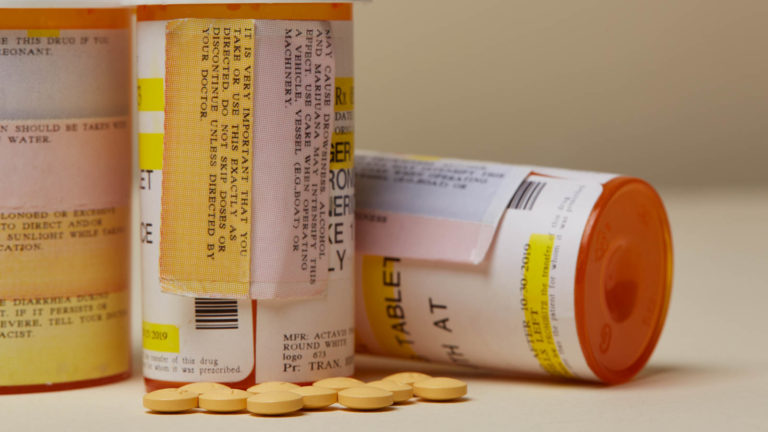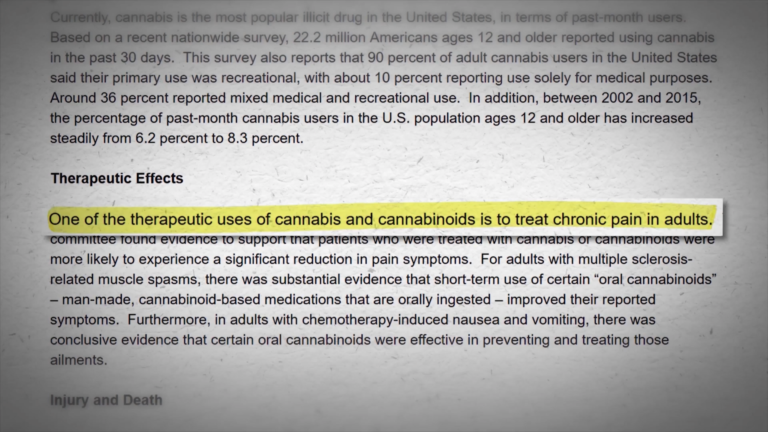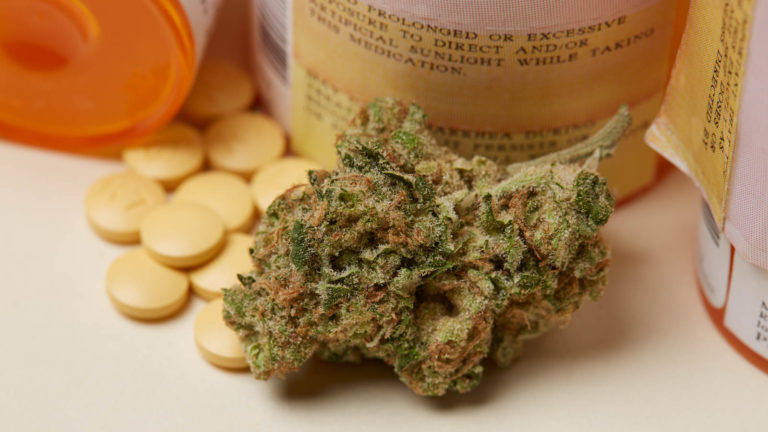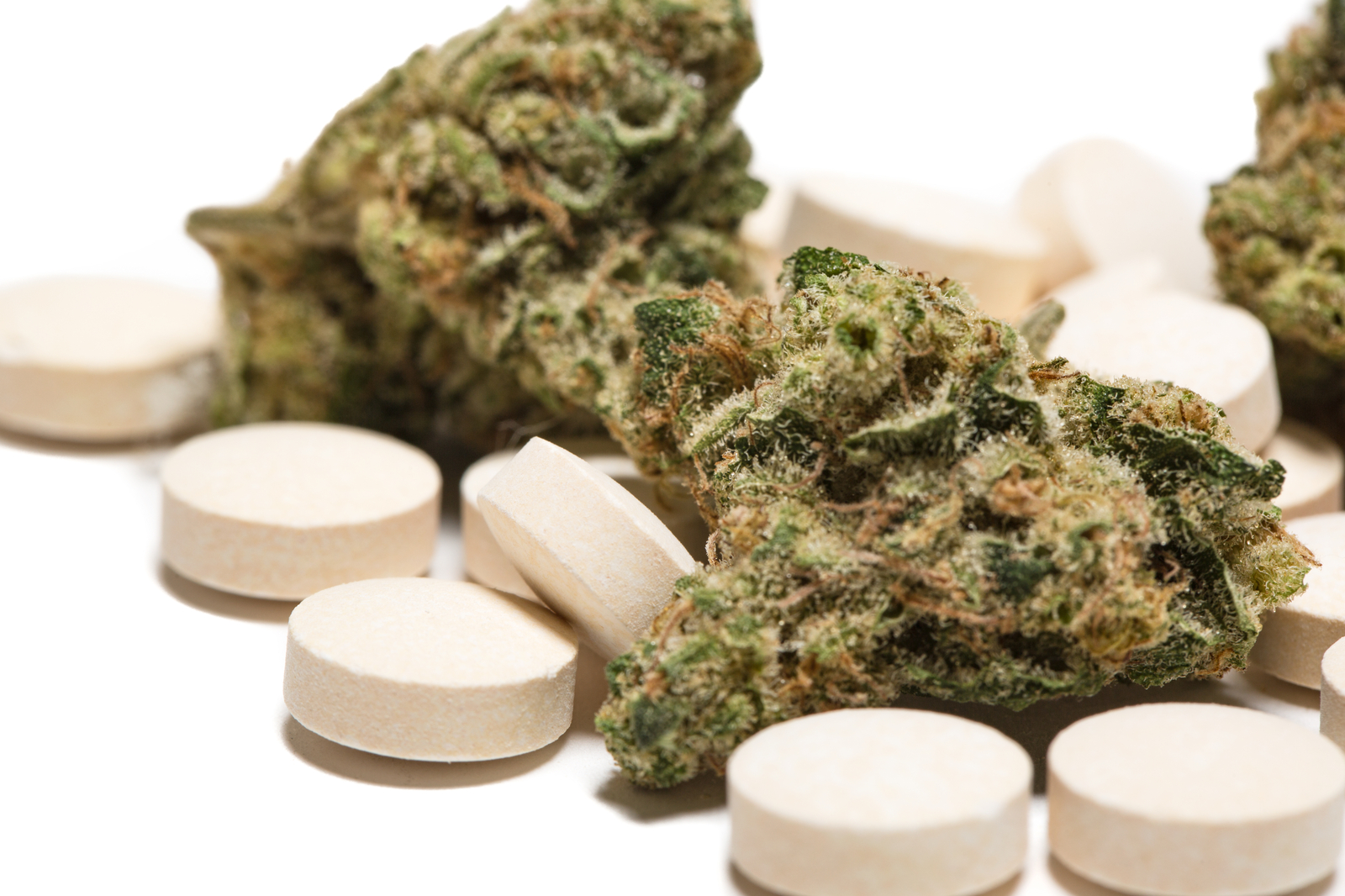How cannabis can combat addiction
The opioid epidemic is arguably the greatest health-care crisis of the 21st century. In 2015 alone, its economic cost in the United States was estimated at more than $500 billion, largely driven by health-care costs, criminal justice expenses, and lost productivity. This crisis has brought more attention to the growing collection of research examining the relationship between cannabis and opiates, particularly when it comes to reducing opioid dependence in patients.
The magnitude and indiscriminately mortal nature of this crisis are unprecedented. For the first time in U.S. history, drug overdoses are killing more people than gun violence or motor vehicle accidents. In fact, 91 Americans die from an opioid overdose each day, according to the Centers for Disease Control and Prevention (CDC). These fatalities are tragic enough, but the residual effects on surviving children, family members, and communities are no less devastating.
 Photo by: Gina Coleman/Weedmaps
Photo by: Gina Coleman/WeedmapsImage lightbox

A major contributor to the overdose crisis is the doctor's prescription pad. Overprescription of narcotic pills or refills, and “doctor shopping” (finding another doctor when one won't refill a prescription) are common.
Recently, an extensive database of stats related to opioid sales and distribution was made public. These numbers showed that, among other potentially troubling trends, pharmaceutical companies in the U.S. distributed 76 billion oxycodone and hydrocodone pills between 2006 and 2012. During that same time period, almost 100,000 people died of complications related to opioid use, especially issues connected to addiction.
In 2016, the CDC issued a new set of opioid prescription guidelines for physicians to try to remedy these issues. A recommendation to treat most cases of chronic pain with non-opioid drugs was included. Notably, warnings were issued for opioids, which are least effective and most dangerous when taken long term.
In January 2017, the National Academies of Sciences, Engineering, and Medicine (NASEM) reviewed more than 10,000 studies in humans to evaluate the safety and efficacy of cannabis for dozens of different diseases and symptoms. The NASEM provided an interesting look at the relationship between cannabis and opiates, definitively concluding that medical cannabis, a non-opioid pain-relieving drug, is indeed safe and effective for the treatment of chronic pain and other medical conditions.

Image lightbox

What's more, in additional investigations of cannabis and opiates, scientists have studied the combined administration of opioids and cannabinoids, or active molecules from the cannabis plant. This research has been ongoing for decades. Across all species, all routes of administration, and nearly every specific opioid and cannabinoid molecule studied, these drugs produce synergistic pain relief when taken together.
In other words, cannabis and opiates work together, with cannabis enhancing the pain relief provided by opioids. That means patients should need lower doses of opioid-based medicines to relieve their pain.
In fact, studies have found this is exactly what happens when chronic pain patients are given access to cannabis. All over the world, time and time again, experts have found that cannabis reduces opioid use by half. Patients also reported a huge improvement in their day-to-day lives due to cannabis' ability to minimize the mental fog and other unpleasant side effects of opioids.
And when a U.S. state enacts a medical marijuana law, the opioid mortality rate drops by 24.8% — and that percentage goes up the longer cannabis has been legal in a state. Furthermore, non-fatal opioid hospitalizations also go down by 23%. And that's true regardless of whether people are using prescription opioids or illicit drugs such as heroin and fentanyl.
These findings aren't entirely surprising to the addiction recovery community, in which anecdotal reports about the connections between weed and opiates are fairly common. Specifically, these reports consistently suggest that using cannabis to wean off of opioids is both quite common and effective. Cannabis is said to have a number of therapeutic effects, minimizing the chills, nausea, excruciating pain, and mental anguish commonly associated with opioid withdrawal. This makes the first few days of opioid detox far more tolerable, boosting the likelihood of staying sober.
We also know that one of the biggest relapse triggers is negative mood or anxiety, and that cannabidiol (CBD) alone has powerful anti-anxiety effects. In preliminary studies at Mt. Sinai hospital in New York, researcher Yasmin Hurd has shown that even a single dose of CBD can inhibit the anxiety that leads to drug craving and relapse in opioid users.
 Photo by: Gina Coleman/Weedmaps
Photo by: Gina Coleman/WeedmapsImage lightbox

In our daily lives, we all experience fluctuations in our mood — sometimes a bit higher than usual, sometimes a bit lower. But with chronic drug use, that “baseline” continually drifts downward, and despite attempts to restore it with drugs, it never gets back to normal. Cannabis is “rewarding” in that it produces euphoria and promotes a positive mood, so it could be a critical tool that helps return mood to a more normal baseline. This means fewer days of heightened anxiety that would normally trigger a relapse.
It's really in the long-term phase of addiction recovery that cannabis has the greatest potential to improve quality of life. Although decades of addiction research have accurately correlated cannabis use with the use of “harder” drugs including heroin, correlation is not causation. In fact, recent research is revealing a number of important new truths about cannabis, many of which undermine earlier assumptions about cannabis being a “gateway drug.”
Such research lays to rest much of the confusion surrounding cannabis and opiates, starting with the common question, is weed an opiate? On this, the science is clear: No, far from it.
Research has now shifted the conversation away from basic questions to more complex ones, most notably, “does weed help with opiate withdrawal?” Researchers are seeing encouraging indicators that weed can actually help people wean off of highly addictive substances. Recent and ongoing research now suggests that cannabis is not the “gateway drug” it's been demonized to be. Rather, it could very well be a humane “exit” from the suffering that is opioid withdrawal, dependence, and addiction.
Major contributions from Dr. Adie Rae.

